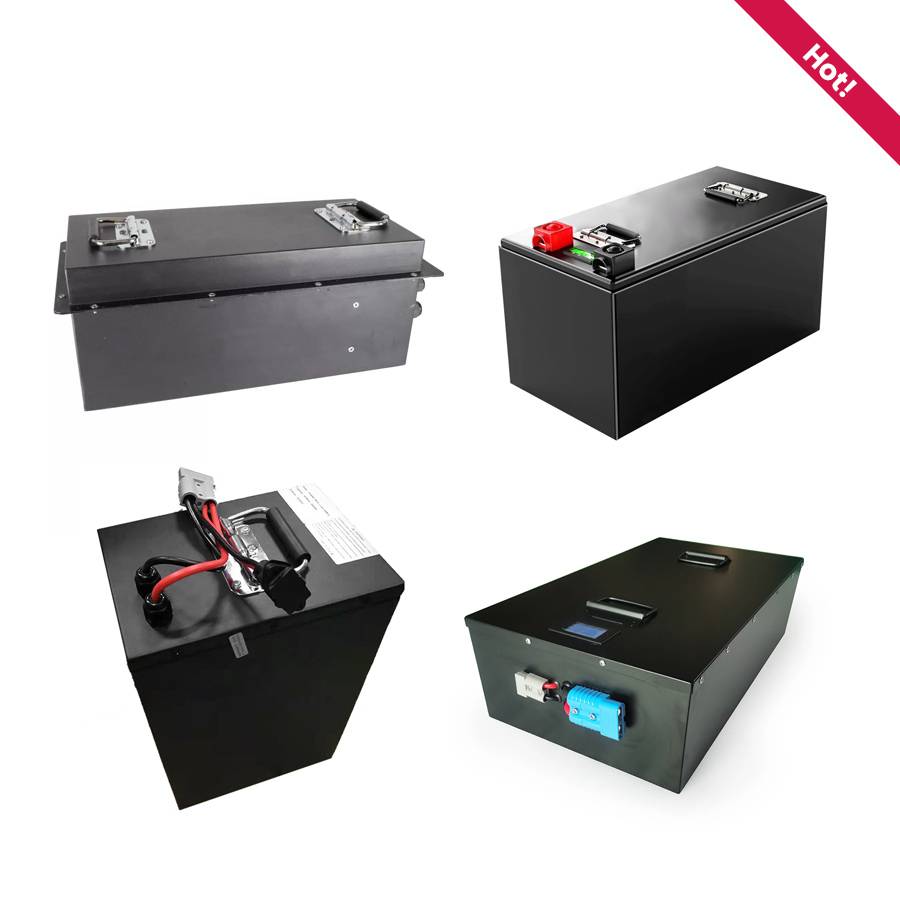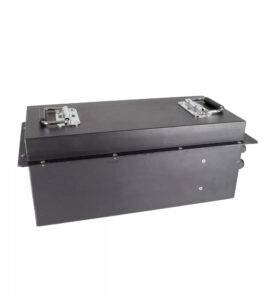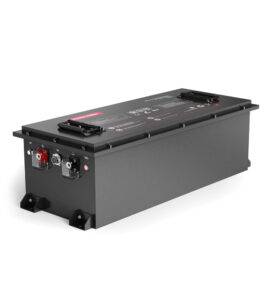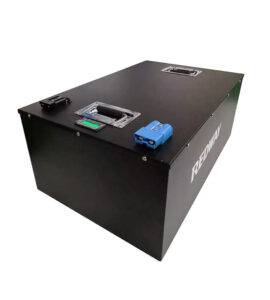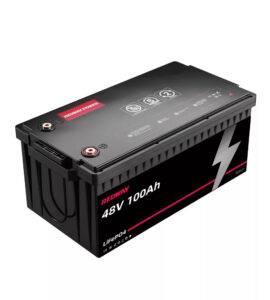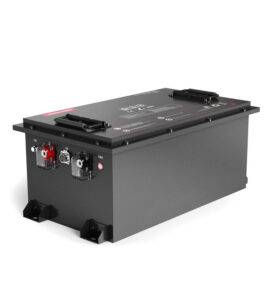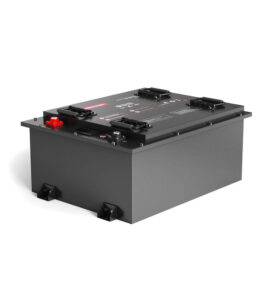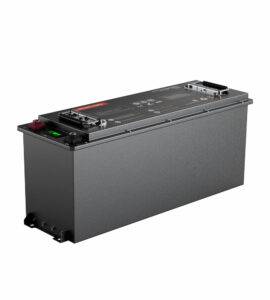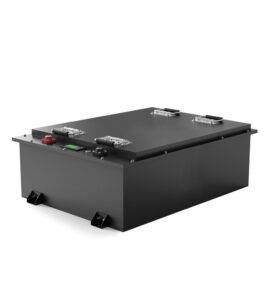72V Lithium ion Battery Factory Wholesale
72V Lithium ion Battery, One-Stop Solution
Redway Power 72V Lithium-ion Batteries, your ultimate one-stop solution for power needs. Engineered for reliability, our rechargeable batteries boast high energy density and a lightweight build. With options ranging from the compact 72V 50Ah to the robust 72V 200Ah, our lineup caters to diverse requirements.
Whether you're a professional or a consumer, our batteries ensure dependable performance for outdoor adventures, emergencies, and professional tasks. Trust Redway Power for unparalleled convenience and reliability in powering your devices. Illuminate your world confidently, backed by Redway Power's advanced lithium battery technology.
Your Trusted Lithium ion Battery Manufacturer
What is the wholesale price of lithium battery?
You can click contact us or phone call us. We will give you multiple options of price.
Is Redway Power a trading company or factory?
Redway Power is a company with its own factory, integrating research, development, production, and sales.
How about the quality of Redway's LiFePo4 Battery product?
Redway Power boasts over 12 years of experience in LiFePO4 battery production and is an authorized supplier for CATL and BYD.
Can you do an OEM/ODM project?
Yes, we have engineers available to assist in designing and developing any related products.
What’s your MOQ?
MOQ varies according to battery voltage and capacity.
What payment terms can we accept?
We accept TT/Paypal/West Union, etc.
What is the Lifespan of a 72V Lithium-ion Battery Compared to Others?
The lifespan of a 72V lithium-ion battery varies, lasting 2 to 5 years with proper care, and LiFePO4 variants can endure thousands of cycles. Compared to other batteries, lithium-ion ones have higher voltage, capacity, and energy density, lasting 2000-4000 cycles. Despite being costlier upfront, they offer longevity and performance benefits, especially for portable devices. Proper maintenance is key for optimal battery life.
Here's a breakdown to help you grasp the key points:
Lithium-ion Battery Lifespan:
- Range: Typically lasts between 2 to 5 years, with LiFePO4 variants enduring thousands of cycles.
- Comparison: Compared to other battery types, lithium-ion batteries boast higher voltage, capacity, and energy density, resulting in a longer lifespan of 2000-4000 cycles.
Advantages and Considerations:
- Cost-effectiveness: Though initially pricier, lithium-ion batteries provide longevity and performance benefits, especially in portable devices.
- Maintenance: Proper care, including using compatible chargers and monitoring voltage levels, is crucial for extending battery life.
Key Takeaway:
- Understanding and maintaining your 72V lithium-ion battery ensures optimal performance and cost-effectiveness, making it essential to follow proper care and maintenance guidelines.
How Do I Safely Handle and Charge 72V Lithium-ion Batteries?
For safe handling and charging of 72V lithium-ion batteries, use a compatible charger and avoid overcharging. Recharge before the battery gets too low, and store it away from extreme temperatures. These steps help prevent damage and prolong battery life.
Here's what you need to know:
Use the Right Charger: Always use a charger specifically made for lithium-ion batteries to avoid damaging them. Check the voltage compatibility to ensure it matches your 72V battery¹.
Avoid Overcharging: Overcharging can lead to reduced battery lifespan and potential safety hazards. Unplug the charger once the battery reaches full capacity to prevent damage and overheating. Keep an eye on the charging process to avoid accidental overcharging¹.
Avoid Deep Discharge: Allowing the battery to completely discharge can harm its longevity. Aim to recharge the battery before it reaches critically low levels to maintain its health and performance¹.
Temperature Considerations: Extreme temperatures can affect battery performance and lifespan. Store and charge the battery in moderate temperature conditions to prevent degradation and ensure optimal functioning.
Following these guidelines helps ensure safe handling and charging of your 72V lithium-ion batteries, keeping them in good condition for longer use!
Can I Interchange 72V Lithium-ion Batteries with Other Types?
Certainly! Lithium-ion batteries are like the ones in our phones and laptops. They last around 2 to 5 years if we take good care of them. But there’s a special type called LiFePO4 that can last even longer—thousands of charge cycles! Remember to charge them right, avoid extreme temperatures, and handle them carefully.
Let’s break down the information about lithium-ion batteries into easy-to-understand points:
Lithium-Ion Batteries: What You Need to Know
Long-Lasting Power Packs:
- What Are They?: Think of lithium-ion batteries as the ones inside your smartphones, laptops, and electric vehicles.
- Lifespan: These batteries usually last around 2 to 5 years, but there’s a special type called LiFePO4 that can go even longer—thousands of charge cycles!
- Why It Matters: Knowing how long your battery will last helps you plan for replacements and keep your devices running smoothly.
Charging and Handling Tips:
- Charge Smart: Avoid overcharging—unplug your device once it hits 100%. Also, don’t let it fully discharge; recharge before it gets too low.
- Temperature Matters: Keep your battery away from extreme heat or cold. Think of it like Goldilocks—room temperature is just right!
- Handle with Care: Treat your battery gently. No throwing or tampering, please! And always check for damage before using it.
Why Choose Lithium-Ion?:
- Energy-Packed: Lithium-ion batteries store more energy in a smaller, lighter package. Great for phones, laptops, and electric cars.
- Longevity: They can handle thousands of charge cycles, outlasting other battery types.
- Low Maintenance: Unlike old-school batteries, lithium-ion ones need minimal fuss—no water top-ups or equalization charges.
- Eco-Friendly: They’re kinder to the environment, containing no toxic lead or acid.
Remember these simple tips to keep your lithium-ion batteries humming along!
What are the Advantages of 72V Lithium-ion Batteries Over Traditional Lead-acid Batteries?
Absolutely! 72V lithium-ion batteries outshine traditional lead-acid ones in several ways. They last up to four times longer, ensuring reliable power without frequent replacements. Plus, they charge and discharge more efficiently, handling bursts of power better. Moreover, they're lighter and more energy-dense, making them perfect for motorcycles and similar applications.
Let's break down why 72V lithium-ion batteries are a better choice than traditional lead-acid batteries:
Longevity: Lithium-ion batteries last significantly longer than lead-acid ones, providing reliable power for up to four times as long. This means less hassle with replacements and more consistent performance over time.
Efficiency: They charge and discharge more efficiently, handling bursts of power better than lead-acid batteries. This efficiency translates to better performance and reliability, especially during high-demand situations.
Weight and Size: Lithium-ion batteries are lighter and more compact compared to lead-acid batteries, making them ideal for applications where weight matters, such as motorcycles. This lighter weight contributes to better handling and overall efficiency.
In summary, opting for 72V lithium-ion batteries ensures longer-lasting, more efficient power for various applications, offering a clear advantage over traditional lead-acid batteries.
How Should I Store 72V Lithium-ion Batteries to Maintain Performance?
To store 72V lithium-ion batteries safely, follow these tips: Maintain a partial charge, store in a cool, dry place (around 20-25°C), avoid extreme temperatures and physical damage, and keep the area dry. Check the charge periodically, prevent full discharge, and handle with care. Use a storage mode charger if available and consult the manufacturer for specific guidelines.
Here's how to do it:
- Partial Charge: Maintain the battery with some charge, around 50%, to prevent overcharging or deep discharge.
- Ideal Conditions: Store the battery in a cool, dry place, away from extreme temperatures and moisture, to preserve its performance.
- Prevent Damage: Ensure the battery is undamaged and handle it with care to avoid any physical harm.
- Avoid Full Discharge: Don't let the battery completely discharge, as it can lead to damage and affect its lifespan.
- Regular Checks: Periodically check the battery's charge level and top it up if needed to maintain optimal performance.
- Use Insulation: Protect the battery terminals from short circuits by using insulating caps or covers.
- Professional Advice: Consult the manufacturer or a professional for specific storage recommendations tailored to your battery model.
By following these steps, you can keep your lithium-ion batteries safe and ready for use when needed.
Are There Maintenance Steps for Extending the Lifespan of 72V Lithium-ion Batteries?
To make your 72V lithium-ion batteries last longer, follow these simple tips: Charge them to about half capacity before storing, and remember to top them up every six months. When not in use, store them separately from devices in a place that's not too hot or cold—ideally between 5 and 20 degrees Celsius. Lastly, keep an eye on their run time, and replace them if they start losing performance.
Here's a straightforward guide to help you understand how to maintain your 72V lithium-ion batteries for longevity:
Charge Properly:
- Charge your battery to around 50% before storing it for a while. This helps prevent damage from overcharging or deep discharging.
- Every six months, give the battery a quick top-up to keep it healthy.
Storage Tips:
- Take the battery out of devices if you won't be using them for some time.
- Find a cool, dry spot to store the battery. Avoid extreme temperatures, as they can harm the battery's performance.
Keep an Eye on Performance:
- Pay attention to how long the battery lasts during use. If it starts running out quicker than before, it might be time for a replacement.
- Don't ignore a battery that's losing its power—it's better to replace it before it causes any issues.
By following these simple steps, you can make sure your 72V lithium-ion batteries stay in tip-top shape and last longer!
What is the Typical Charging Time for a 72V Lithium-ion Battery?
Charging time for a 72V lithium-ion battery varies based on capacity and charger current. A 20Ah battery charged at 5A with 95% efficiency takes around 4.23 hours. Efficiency, battery health, and temperature also affect charging. Follow manufacturer guidelines for safe and efficient charging.
Let's break it down:
Battery Capacity Matters: The battery's capacity, measured in ampere-hours (Ah), determines how much charge it can hold. A higher capacity battery will generally take longer to charge compared to a lower capacity one.
Charging Current Impact: The charging current, measured in amperes (A), determines how quickly the battery receives charge. Higher current chargers can charge the battery faster, but it's crucial to stay within safe limits to avoid damage.
Efficiency Considerations: Charging efficiency refers to how much of the energy from the charger is effectively stored in the battery. Lithium-ion batteries typically have an efficiency of around 90-95%, meaning some energy is lost as heat during charging.
In conclusion, charging time depends on the battery's capacity, the charging current, and the efficiency of the charging process. Following manufacturer guidelines ensures safe and efficient charging practices for your 72V lithium-ion battery.


